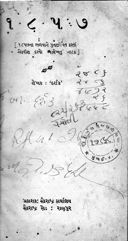The organising principles of Indian polity and society are the same that define a western country: a multi-party system, individualism, liberty, a free press and rule of law
Hafiz Muhammad Saeed, the self-confessed leader of the banned outfit Lashkar-e-Taiba, may think that Pakistan is the best Islamic nation for the Bollywood star, Shahrukh Khan to move to, but it is India that is arguably the best Muslim country today. Muslims in India enjoy complete political and religious liberty, a free legislative environment to undertake economic and educational initiatives, a vibrant television media and cinema that teach liberal coexistence, and access to a vast number of universities and institutes of modern education. There is absolutely no Muslim country that offers such a vast array of freedoms to its people.
India is able to offer these freedoms to its citizens because it is a successful democracy. It was good for India to lose the 1857 war; if the British had lost, Indians would have continued to be governed by kings and nawabs, and under shari’a courts that existed during the Mughal era. At the time of independence, the British left behind a justice system that was blind to religious and caste inequities in Indian society, an inclusive democracy that guaranteed equal rights and religious and political freedoms for all; English language that opened doorway to enlightenment and scientific education; and a civil service that treated everyone as Indians rather than Muslims, Hindus or Christians. Muslims in India enjoy these freedoms because India is a thriving democracy, unlike Pakistan that chose a discriminatory constitution, barring its own citizens from holding top positions such as the president of Pakistan because they are Hindus or Christians. Over the past half century, hundreds of millions of Dalits and women have found political empowerment and social freedoms in Indian democracy.
Religion cannot be a good model of governance for modern times because it fails to imagine situations in which non-Muslim citizens could be trusted to govern a Muslim country. Conversely, democracies trust their citizens irrespective of their faith. In a democracy like India, any citizen could compete to be the elected ruler. As democracy matures, India has appointed its Muslim citizens to top positions, currently Hamid Ansari as vice president, Salman Khurshid as foreign minister, Justice Altamas Kabir as Chief Justice, and Syed Asif Ibrahim as the chief of the Intelligence Bureau. It is also true that Muslims lag behind in India’s collective life, but this is because they are under the influence of orthodox ulema or because Muslim politicians fail to imagine themselves as leaders of all Indians. A Muslim politician will be the country's prime minister the day Indian Muslims begin to view themselves as leaders of all Indians and not only of Muslims, much like Barack Obama who imagined himself as a leader not only of blacks, but of all Americans.
Effectively, India is a ‘western’ country. In the popular imagination, the west is viewed as a geographic concept, covering mainly the United States, Britain and parts of Europe. However, the ground realities are otherwise. Several countries, notably Australia, New Zealand, Japan and South Korea, are situated in the east, but in terms of their values and politics are firmly part of the west. Conversely, countries such as Russia and some in Latin America are geographically in the west but cannot be called a western country as their citizens do not enjoy the social and political freedoms available to free people in the west. The organising principles of Indian polity and society are the same that define a western country: a multi-party system, individualism, liberty, a free press and rule of law. As in a western country, consensus about governance, politics and society is moderated by media and political parties and is derived from differences rather than similarities of religion and ideology as in Saudi Arabia or North Korea.
Early this year, Shahrukh Khan wrote a long article in which he discussed how “stereotyping and contextualizing” determine the way societies treat us as individuals as we interact with others. Khan narrated that he is loved as a Bollywood star in every country, but is also questioned by officials at US airports over links to terrorists, as his surname is shared by an unknown terrorist. Khan also observed: “There have been occasions when I have been accused of bearing allegiance to our neighbouring nation [Pakistan].” Hafiz Saeed reacted to this statement, suggesting that Khan, and presumably all Indian Muslims, should move to Pakistan. If Khan were to move to Pakistan, think of the images he would witness everyday: the genocide of Shia Muslims; the Taliban bombers shooting girls and namazis; Karachi up in flames and Pakistani businessmen leaving the country; plight of Hindus and Christians and lawlessness everywhere.
Saeed and his cohorts must bear in mind that terrorism that affects Muslims in India originates from Pakistan: the jihad in Kashmir through the 1990s or the attacks by Indian Mujahideen collaborating with their controllers in Pakistan. Like any country, India has its own share of extremist Hindus as well as Islamic and naxalite militants, but the courts are taking care of them.
Indian democracy is a model for all Islamic countries. It is the only country where Muslims have experienced democracy solidly for more than half a century; the other countries where Muslims have had some democratic experience are Indonesia and Turkey but their experiences have been limited to just a few decades. Democracies trust their citizens and are accountable to them. Democracies also bring freedom and economic prosperity for their people. In his book, Development as Freedom, Nobel laureate Amartya Sen demonstrated that famines have occurred only in countries governed under authoritarianism while freedom available to people in democracies has ensured economic welfare of their entire populations. Indian democracy has a large Muslim population, about the same as in Pakistan. As democracy matures and economy prospers, Muslims in India are beginning to benefit from a sea of economic and educational opportunities opening before them.
Islamic and authoritarian countries like Pakistan, Saudi Arabia and North Korea do not trust their own people. Islamic terrorists, jihadists like Hafiz Saeed and other Taliban-like Islamists think of defending their religions and ideologies rather than the interests and welfare of their people. It is due to such thinking that 180 million people of Pakistan are today literally buried under the weight of a failed education system, a rapidly collapsing Pakistani economy that is forcing business leaders to move their money to countries such Sri Lanka, lawlessness that makes common Pakistanis insecure in their own homes and a future that fails to offer hope. The Inter-Services Intelligence, a friend of Saeed that imagines itself as the ideological guardian of the Islamic state of Pakistan, could do a favour by trusting the Pakistani people and letting them decide their own course of life and governance.
(The writer is a former BBC Urdu Service journalist, is Director of South Asia Studies Project at the Middle East Media Research Institute, Washington DC.)
http://dailytimes.com.pk/default.asp?page=2013�316story_16-3-2013_pg3_5
![]()


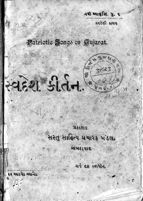 Another interesting fact should also be noted. Gandhi influenced Gujarati language and literature to such an extent that the period between 1920 and 1950 is usually referred to as the Gandhian Period of Gujarati literature. So, one would expect Gujarati books and periodicals to lead the tally of banned books in India. But the number of forfeited Gujarati books is considerably less compared to some other languages. As per figures provided by the National Archives of India, largest number of such items (402) belongs to Hindi. Urdu comes second with 126 items, and Punjabi third with 114 items. These are followed by English (89 items), Marathi (88 items), Gujarati (61 items), and Bengali (48 items).
Another interesting fact should also be noted. Gandhi influenced Gujarati language and literature to such an extent that the period between 1920 and 1950 is usually referred to as the Gandhian Period of Gujarati literature. So, one would expect Gujarati books and periodicals to lead the tally of banned books in India. But the number of forfeited Gujarati books is considerably less compared to some other languages. As per figures provided by the National Archives of India, largest number of such items (402) belongs to Hindi. Urdu comes second with 126 items, and Punjabi third with 114 items. These are followed by English (89 items), Marathi (88 items), Gujarati (61 items), and Bengali (48 items). Narayan Vasanji Thakkur (1884-1938) was a prolific writer. He published more than 100 books. One of his social novels Aajkaalno Sudharo ke Ramaneey Bhayankarta published in 1911 was also proscribed. Even with a close reading, one cannot find anything against the Government in this 352 page novel. Then why would the Government ban it? This was perhaps because the book is out and out against social reforms. And in the process of denigrating the movement for social reforms, it also criticizes, even ridicules, everything British – their social, educational, and legal systems, their penchant for alcohol and non-vegetarian food, etc. Ever since the social reform movement began in Gujarat in the second quarter of the 19th century, a small but vociferous group opposed everything modern, everything western. Thakkur belonged to this group.
Narayan Vasanji Thakkur (1884-1938) was a prolific writer. He published more than 100 books. One of his social novels Aajkaalno Sudharo ke Ramaneey Bhayankarta published in 1911 was also proscribed. Even with a close reading, one cannot find anything against the Government in this 352 page novel. Then why would the Government ban it? This was perhaps because the book is out and out against social reforms. And in the process of denigrating the movement for social reforms, it also criticizes, even ridicules, everything British – their social, educational, and legal systems, their penchant for alcohol and non-vegetarian food, etc. Ever since the social reform movement began in Gujarat in the second quarter of the 19th century, a small but vociferous group opposed everything modern, everything western. Thakkur belonged to this group. 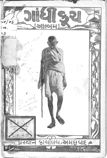 It was intriguing for me to find an album of Gandhiji’s photographs in the list of proscribed books. But when I saw the book, the reason for doing so was apparent. All photographs in the book relate to the 1930 Dandi March and the accompanying text, written by Rasiklal Parikh (1897-1982) is highly critical of the Government’s handling of the March. He has also quoted extensively from Gandhiji’s articles and speeches.
It was intriguing for me to find an album of Gandhiji’s photographs in the list of proscribed books. But when I saw the book, the reason for doing so was apparent. All photographs in the book relate to the 1930 Dandi March and the accompanying text, written by Rasiklal Parikh (1897-1982) is highly critical of the Government’s handling of the March. He has also quoted extensively from Gandhiji’s articles and speeches. 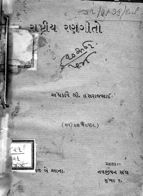 Even after considerable efforts, I have not been able to find any biographical details for ‘Blind Poet Hansrajbhai.’ But he was one of the most popular songsters during the period of our freedom movement. Rashtreey Rangeeto is an 18 page booklet, but almost every page has dynamite laid on it for the British Government. One of the songs opens thus:
Even after considerable efforts, I have not been able to find any biographical details for ‘Blind Poet Hansrajbhai.’ But he was one of the most popular songsters during the period of our freedom movement. Rashtreey Rangeeto is an 18 page booklet, but almost every page has dynamite laid on it for the British Government. One of the songs opens thus: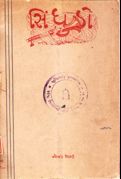 Traditionally, we refer to Gujarati literature produced between 1920 and 1950 as literature of the Gandhian Period (Gandhi Yug). But surprisingly, not many books written by leading lights of this period appear in the list of banned books. Two exceptions are Zaverchand Meghani and Manubhai Pancholi, alias ‘Darshak.’ Zaverchand Meghani earned the title of ‘the National Poet’ from a person no less than Gandhiji. Most of the poets and poems related to our freedom movement are almost forgotten today, but Meghani and his poems are an exception. His Sindhoodo, a 30 page booklet containing only 16 songs, is perhaps the most celebrated of books proscribed by the British Government. It was first published on April 6, 1930, the first day of the Civil Disobedience Movement. By the time the British Government proscribed it, most of its ten thousand copies were already sold. Unnerved by its popularity, the British Government charged Meghani with making a seditious speech and the Court at Dhandhuka (a town in Saurashtra region of Gujarat) sentenced him to imprisonment for two years. After the magistrate delivered his judgment, with his permission, Meghani recited one of the poems contained in Sindhoodo.
Traditionally, we refer to Gujarati literature produced between 1920 and 1950 as literature of the Gandhian Period (Gandhi Yug). But surprisingly, not many books written by leading lights of this period appear in the list of banned books. Two exceptions are Zaverchand Meghani and Manubhai Pancholi, alias ‘Darshak.’ Zaverchand Meghani earned the title of ‘the National Poet’ from a person no less than Gandhiji. Most of the poets and poems related to our freedom movement are almost forgotten today, but Meghani and his poems are an exception. His Sindhoodo, a 30 page booklet containing only 16 songs, is perhaps the most celebrated of books proscribed by the British Government. It was first published on April 6, 1930, the first day of the Civil Disobedience Movement. By the time the British Government proscribed it, most of its ten thousand copies were already sold. Unnerved by its popularity, the British Government charged Meghani with making a seditious speech and the Court at Dhandhuka (a town in Saurashtra region of Gujarat) sentenced him to imprisonment for two years. After the magistrate delivered his judgment, with his permission, Meghani recited one of the poems contained in Sindhoodo.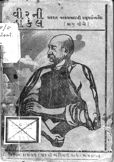 Sardar Vallabhbhai Patel’s speeches made during the 1930 movement were collected in two volumes under the title Veerni Hakal. The first edition of ten thousand copies of the first volume was sold out within no time. Second volume was published within a few months. However, the British Government proscribed both volumes. Preface to the first volume was written by Mahadev Desai, personal secretary to Gandhi, while awaiting arrest in a police station.
Sardar Vallabhbhai Patel’s speeches made during the 1930 movement were collected in two volumes under the title Veerni Hakal. The first edition of ten thousand copies of the first volume was sold out within no time. Second volume was published within a few months. However, the British Government proscribed both volumes. Preface to the first volume was written by Mahadev Desai, personal secretary to Gandhi, while awaiting arrest in a police station.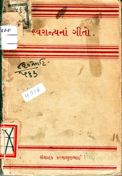 Kalyanji Mehta, a veteran freedom fighter from Surat collected some songs popular during the freedom struggle under the title Swarajyana Geeto. The first volume containing some 155 songs by various poets was published in 1931 to mark Gandhiji’s birth day, and was soon proscribed. The second edition, containing 157 songs, was published in 1938 to mark the 51st Session of the Congress held at Haripura. By this time, the then Bombay State had a Congress Government, and its Home Minister Dr. Kanaiyalal Munshi had revoked the ban imposed earlier.
Kalyanji Mehta, a veteran freedom fighter from Surat collected some songs popular during the freedom struggle under the title Swarajyana Geeto. The first volume containing some 155 songs by various poets was published in 1931 to mark Gandhiji’s birth day, and was soon proscribed. The second edition, containing 157 songs, was published in 1938 to mark the 51st Session of the Congress held at Haripura. By this time, the then Bombay State had a Congress Government, and its Home Minister Dr. Kanaiyalal Munshi had revoked the ban imposed earlier. 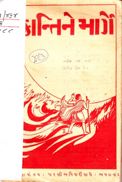 Krantine Marge, (On the Road to Revolution) was written in 1930 but was published in 1932. Author Prabhakar Biharilal wanted Kaka Kalelkar to write its preface and so gave him the manuscript. Kalelkar put it in his travel bag so that he can read it while traveling. But the bag was stolen during one of his train journeys. Kalelkar issued press advertisements requesting the thief to return at least the manuscript. But he did not. Luckily, the author had another copy of the book and Kalelkar ultimately wrote preface to the book, hence the delay in its publication. But the book was proscribed soon after its publication.
Krantine Marge, (On the Road to Revolution) was written in 1930 but was published in 1932. Author Prabhakar Biharilal wanted Kaka Kalelkar to write its preface and so gave him the manuscript. Kalelkar put it in his travel bag so that he can read it while traveling. But the bag was stolen during one of his train journeys. Kalelkar issued press advertisements requesting the thief to return at least the manuscript. But he did not. Luckily, the author had another copy of the book and Kalelkar ultimately wrote preface to the book, hence the delay in its publication. But the book was proscribed soon after its publication.